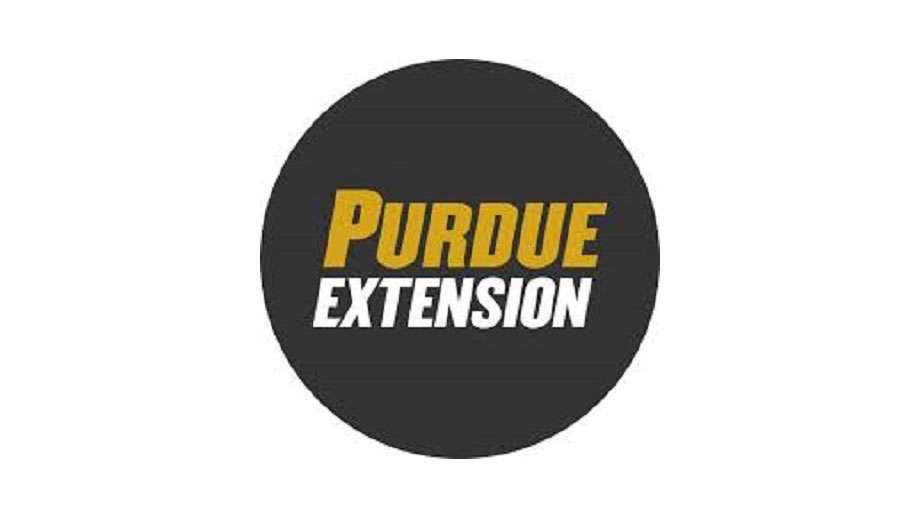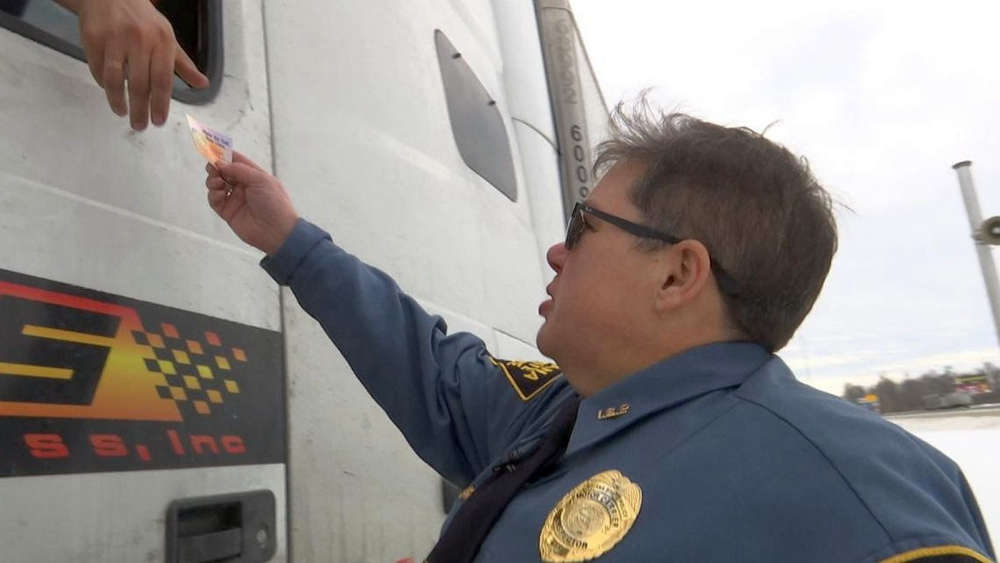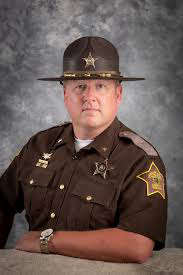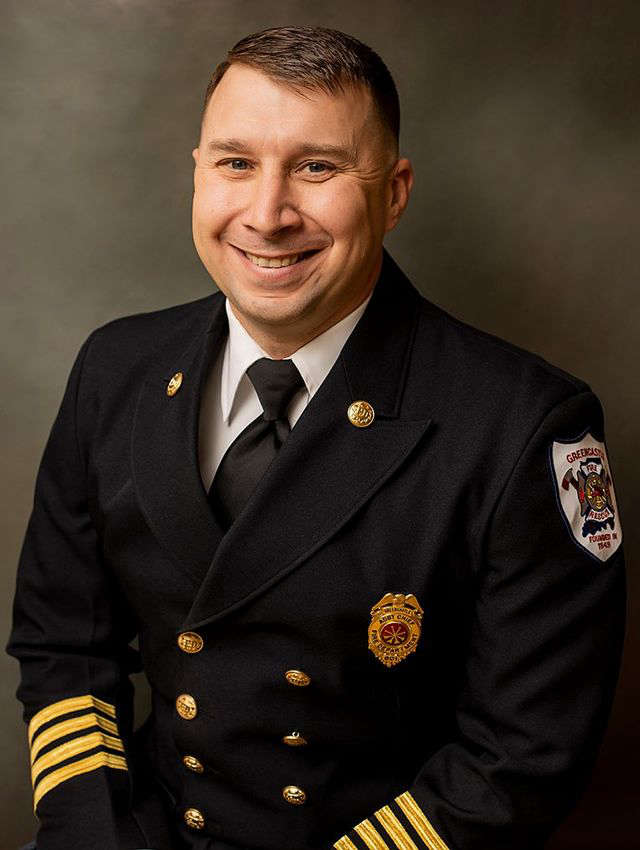
On the heels of several passionate pleas from downtown business owners and after "going back to the drawing board," the Greencastle City Council gave a nod to first reading of a proposed Designated Outdoor Refreshment Area Thursday night during its council meeting.
The measure, which was approved by a 5-2 vote, was the second attempt at approving a DORA after the measure failed 4-2 last month. This time around, council members Vincent Aguirre, Katherine Asbell, Dave Mastin, Mark Hammer and Tina Nicholson all voted in favor, while Stacie Langdon and Darrel Thomas were the lone no votes.
Under the measure, individuals 21 years of age and older can purchase alcoholic beverages from approved vendors and retail establishments and carry them outside the business to be consumed within the district. In addition, the DORA will be in effect 52 weeks a year from Thursday through Saturday from 10 a.m. to 11 p.m. And, perhaps, most importantly, according to a handful of business owners, the DORA will provide protection to businesses.
Both Alex Eaker and Elliott Dunbar, both co-owners of Lost Hollow, were among the business owners who turned out.
"The DORA actually puts perimeters around drinking so it protects the people who are doing it and the businesses as well. This already happens in Greencastle where people are walking out with alcohol. We try to skirt around legalities sometimes, but this will allow us to be protected. In addition, it will help us grow in this town and will bolster the legitimacy of events in Greencastle. If it doesn't work, you can dissolve this at any time," Eaker told the council.
Dunbar echoed those sentiments.
"The DORA is a big deal for things like First Friday. Yes, there are certain benefits like carrying alcohol down the street, which you can do already, but I am looking at this like a business owner and the safety for our liquor license," said Dunbar, who explained that currently every bar and restaurant that participates in First Friday events has to obtain a one day liquor license for the event.
Dunbar said there are barriers already in place by the Indiana Alcohol and Tobacco Commission in which liquor licenses can be crossed over during First Friday events by patrons strolling downtown with alcohol.
"It puts all the businesses at risk. When Pete sells a beer and someone walks over into Gail's territory, Gail and Pete are at risk for getting a fine. When that happens on our territory, it is the same risk for us. Anytime we have a First Friday where we have people come and enjoy music, enjoy food, support our businesses and they may want to enjoy a refreshment, yes, they leave the front door sometime. We can't stop that every time and we can't have people standing at every barrier saying, "hey this is not the liquor license where you bought that beer from, you're in a new liquor license zone and you need to dump that out." The DORA provides safety for restaurant and bar owners," said Dunbar, who added the district makes it safer for business owners when it comes to potential license issues and fines.
Dunbar continued saying the adoption of the DORA would be a "pro business movement."
"This helps businesses not get fined and stay in business. The more First Friday and the more we have people buying and selling products from businesses, the more Excise is going to come. This is more of a long term thinking until someone gets a fine, let's prevent it. They are not cheap. We are talking $1,000 an instance. We sell more than one beer a night. We definitely have more than one beer walk down the street. If we can have a DORA cup and we know everyone's license is safe, it simplifies the process. We have an open container law and people drink anyways, but let's put something around that. Let's help the businesses make sure they can do that in a way that is safe for the consumer, safe for the business owner and safe for the employees, safe for the state and Excise and it just makes it a much smoother process. Everyone sells alcohol now, and it is a way for us to grow our business. All businesses together on this is huge, and I think that says a lot" Dunbar said.
Joel Everson, owner of The Whisk and The Bodega, also told council the proposed ordinance would be a win for downtown business owners who have struggled and reminded the council that the ordinance was presented last month "on behalf of local small businesses in downtown Greencastle who have been struggling."
"We are not talking about people drinking more beer or less beer or becoming bigger bourbon fans. We are talking about our small businesses in a historic downtown. We are talking about Moore's, which has been here for 75 years, and I want to see it be here for another 150 years. Shame on us, if on our watch, we do not do everything we can to encourage our small businesses to stay intact," Everson said, adding that all the business owners are looking for is to know the city council is on their side. "It is the future of our town that matters, and we have an obligation to that."
Pete Meyer, owner of Moore's Bar and Grill, reminded the council that there is no open container law in downtown Greencastle.
"This actually controls downtown Greencastle. That is the best case scenario for everyone. I am not here to discuss the perimeters of downtown, but if you want to control it, we have to control, by ourselves, glass going out the door onto the street, we have to control cups going out the door. But, technically, unless they are falling down drunk, they can walk down the street with their glass in hand right now. All I am saying is this controls what Greencastle does, and I am all for it, completely. It is very simple. We, as a city, with this DORA have control where people are walking outside with alcohol. If you don't do this, we don't until you change the law in downtown Greencastle," Meyer said.
Councilman Dave Mastin made a point about the opportunity for potential issues as people take alcoholic beverages out and about and that he would like to see the matter re-evaluated after a year, as well as an assessment of whether it was successful.
Meyer said there should also be an assessment of events at DePauw University.
"A lot of the people that come through downtown on different times of the year, not necessarily First Friday, are DePauw alumns. They are here multiple times a year and they are walking from Bridges to Moore's to The Whisk to Lost Hollow to Almost Home and going back and forth. That's a fact. They do it all the time. I think that it is important that this becomes a major step for Greencastle. It controls the downtown drinking, and controls what is on the street and it supports those businesses young and old. We are all for it. I am for all the businesses, but we need to give them an opportunity to expand, and this is it," Meyer said.
Mastin was asked what negatives he was concerned about, and he said there is always someone in a crowd that creates issues.
"I guess if people are committing crimes and they go to jail, that is going to happen with the DORA or not," Eaker said.
Mastin said absolutely and added when you get a bunch of people together drinking the problem could be exacerbated.
"Could it be exacerbated? I don't know. Probably not," Mastin said.
As for potential issues, Dunbar said the negatives can be addressed with more police presence or more attention to safety.
"Let's plan for the worst. There are so many bad things that can happen that aren't already a risk currently with what is already going on," Dunbar said.
Meyer said in the last four years there has not been one issue physical or otherwise.
"We do not allow that to take place, and Moore's Bar runs Indiana Street for First Friday. What I am saying is this is a major step forward for Greencastle to control alcohol on the street, to control glass on the street and communicate across the board that we are all for it. This is a no-brainer," Meyer said.


 IDHS activates State Emergency Operations Center in response to winter storm
IDHS activates State Emergency Operations Center in response to winter storm
 Tips for healthier backyard fruit trees
Tips for healthier backyard fruit trees
 Local officials urge residents to use safety during upcoming snow storm
Local officials urge residents to use safety during upcoming snow storm
 ISP releases Human Trafficking Awareness Initiative results
ISP releases Human Trafficking Awareness Initiative results
 Florida man facing sex crimes in Putnam County
Florida man facing sex crimes in Putnam County
 Putnam County Sheriff's Office sees busy year
Putnam County Sheriff's Office sees busy year
 Greencastle Fire Chief Rob Frank looks back at '25
Greencastle Fire Chief Rob Frank looks back at '25

